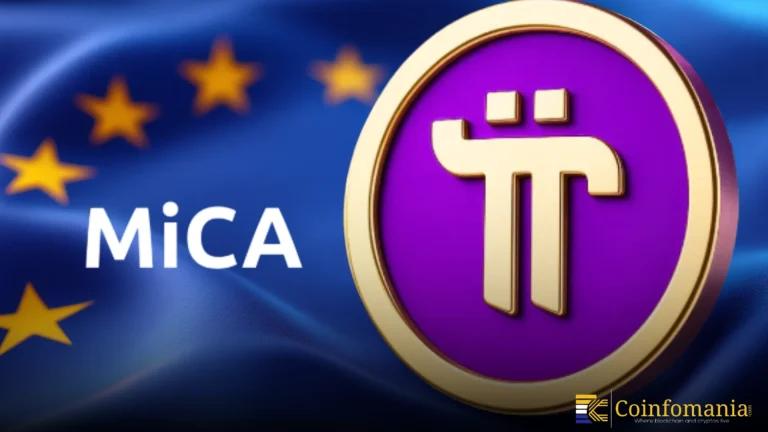LayerEdge Reveals Interchain Model Combining edgenOS for Decentralized zk-Verification and Edgen Chain for Modular Execution
Dive into the integration of edgenOS and Edgen Chain in the LayerEdge Interchain model for decentralized and trustless verification.

Quick Take
Summary is AI generated, newsroom reviewed.
LayerEdge combines edgenOS and Edgen Chain to verify data across many blockchains without relying on one network.
EdgenOS validates zk-proofs using everyday devices, while Edgen Chain runs an EVM-compatible execution layer with Cosmos SDK.
Verified data is shared daily across chains like Ethereum and Solana to keep verification open and reliable.
On June 2, LayerEdge shared a post detailing its shift into LayerEdge Interchain. The change brings a model merging two main systems for verification. The key components include edgenOS and Edgen Chain operating together now. Each layer has distinct roles to improve blockchain trust and proofs. This platform aims to reshape verification using simple hardware devices across networks. The goal focuses on decentralized and on-chain verification by leveraging multiple blockchains. As such, the Interchain aims to reduce reliance on a single chain for trust.
EdgenOS and Edgen Chain Enable Interoperable Blockchain Verification
EdgenOS turns common devices into nodes that validate cryptographic proofs securely. The system collects these proofs and groups them into batches every day. A single anchor proof from the batch is committed to multiple blockchains. This approach shares trust across networks rather than using one blockchain alone. By leveraging diverse chains, verification remains open and adaptable for all users. Developers on any chain can access these verification services without restriction. EdgenOS thus enables scalable decentralized solutions by using everyday hardware.
Edgen Chain functions as the execution layer connecting to edgenOS verification tasks. It is built with the Cosmos SDK for modular development and ease of upgrade. Smart contracts on this chain can request or process zk-proof validation jobs. Edgen Chain supports rollups outsourcing proof of finality and AI systems requesting model verification. It also caters to DePIN networks needing scalable attestation, unlocking a new class of verifiable dApps. Developers gain flexibility to integrate verification directly into their applications. Edgen Chain remains fully EVM-compatible for broader developer adoption. Applications built here feed results back to edgenOS for proof aggregation each day.
LayerEdge’s Interchain Model for Simplified Transfer Across Chains
A continuous loop exists between edgenOS and Edgen Chain for verification tasks. Verified tasks on Edgen Chain become new proofs in the edgenOS system. These proofs are aggregated daily and anchored across selected blockchains automatically. The cycle highlights that Edgen Chain also contributes actively to proof generation. It ensures both layers function as partners rather than separate entities. This design aims to scale verification by combining devices and on-chain mechanisms. Such integration creates a robust framework for decentralized verification across chains.
LayerEdge uses the Cosmos SDK to build a modular verification infrastructure. Custom modules manage verifier coordination and proof normalization efficiently. Inter-Blockchain Communication (IBC) protocol links Edgen Chain to over 115 networks. The IBC Eureka upgrade enables native interactions between Ethereum and Cosmos blockchains. This connection supports cross-chain liquidity and verification flows without central layers. Through these channels, LayerEdge Interchain aims to foster broad interoperability across ecosystems. With this model, developers can transfer assets or proofs freely across linked blockchain platforms. This setup removes barriers that limit multi-chain verifications and trust growth.
Can LayerEdge Deliver Transparent Trustless Data Verification?
LayerEdge’s design addresses challenges of verifying data across multiple blockchain networks. Proofs anchor to blockchains such as Ethereum and Solana for added security. By avoiding reliance on a single network, trust remains distributed and robust. This reduces dependence on centralized validators or proof-of-work consensus alone. Cross-chain integrity ensures data verification flows across varied ecosystems. Such a framework encourages scalable designs for future-proof blockchain applications. Emphasizing decentralized verification creates a transparent and trustless process. This method offers an alternative to traditional centralized models.
EdgenOS Goes Live while Edgen Chain Launches Alpha Mainnet
Currently, the edgenOS system is live and actively processing verification proofs. Edgen Chain currently runs in an alpha mainnet stage for early testing. Developers may begin building applications that leverage its decentralized verification architecture. Potential uses include proof markets, decentralized attestation, and zk-native coordination layers. The project intends to derive trust by aggregating input from diverse devices. This model contributes to a more distributed form of internet infrastructure overall. Ongoing development aims to expand functionality and network participation over time. Interested parties can monitor progress through official community channels and documentation.
References
Follow us on Google News
Get the latest crypto insights and updates.


